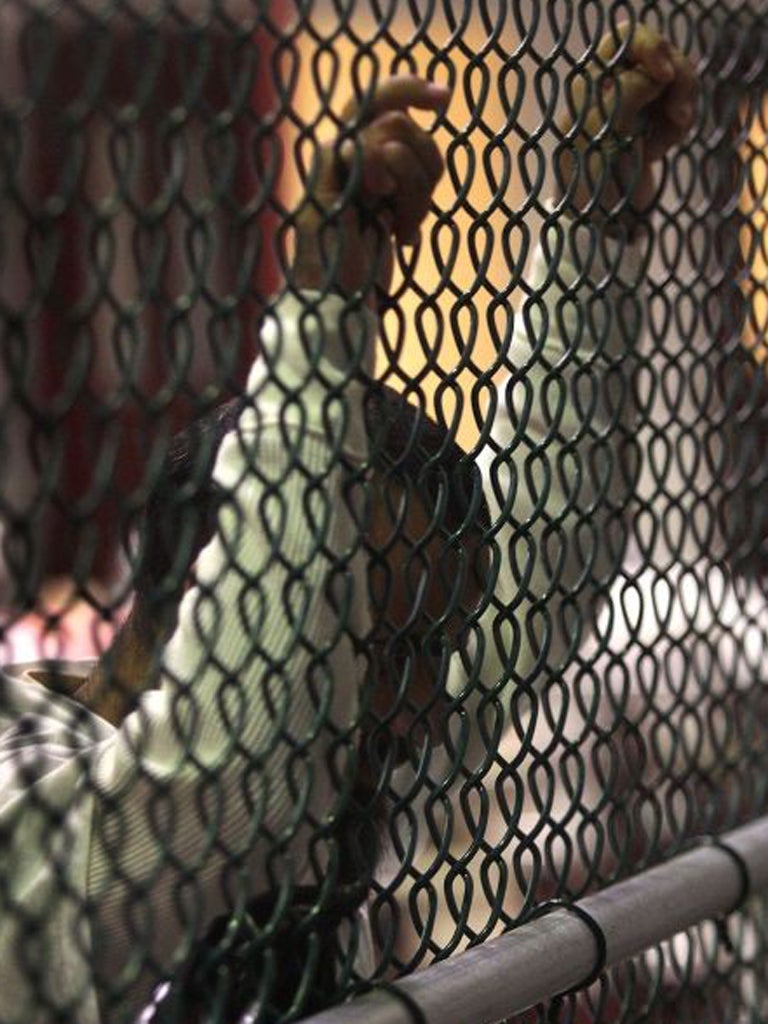Interrogators without Pliers, Radio 4, Monday Hallucination: Through the Doors of Perception, Radio 4, Wednesday
You'll find out more by being nice than nasty

Your support helps us to tell the story
From reproductive rights to climate change to Big Tech, The Independent is on the ground when the story is developing. Whether it's investigating the financials of Elon Musk's pro-Trump PAC or producing our latest documentary, 'The A Word', which shines a light on the American women fighting for reproductive rights, we know how important it is to parse out the facts from the messaging.
At such a critical moment in US history, we need reporters on the ground. Your donation allows us to keep sending journalists to speak to both sides of the story.
The Independent is trusted by Americans across the entire political spectrum. And unlike many other quality news outlets, we choose not to lock Americans out of our reporting and analysis with paywalls. We believe quality journalism should be available to everyone, paid for by those who can afford it.
Your support makes all the difference.Morality aside, the big question hanging over the "enhanced interrogation techniques" rolled out in a corner of Cuba is whether they work. Ali Soufan, FBI special agent and Guantanamo Bay operative, thinks not.
In Interrogators without Pliers, he told Julian Putkowski that being nice works better. Khalid Sheikh Mohammed, al-Qa'ida bigwig, was waterboarded 183 times, he observed, and coughed up nothing but water. He recalled interrogating Osama bin Laden's driver, who had been wholly unco-operative. Soufan found he'd been promised a phone call to his wife, which hadn't happened. He took him outside, asked for the number, dialled it on a satellite phone and handed the phone over. Back inside, "he looked at me and, from the way he looked, I knew that there were no more walls between us".
The approach was inspired by Hanns Scharff, master interrogator of the Luftwaffe, who gave US airmen the impression that he pretty much already knew what he needed to and that they were just chatting. "In the course of genial conversation he might reveal [something] without even knowing what he said," Scharff explained in one of the post-war lectures he gave to US Air Force pilots. "Plain human spirit breaks down resistance … brutality you can resist."
There were revelations, too, in Hallucination: Through the Doors of Perception, such as that, in the Middle Ages, they didn't mark you down as mad for "seeing things" but as being in touch with the invisible world. There are also many causes other than mental illness.
Geoff Watts met Doris, whose eyesight is failing through macular degeneration. She sees anything from baskets of flowers to disembodied faces. "Sometimes they sit by the bed, but they never look at me, and they're pretty peaceful." Watts also spoke to a "healthy hallucinator", a Dutch nurse who hears voices, and who recalled first riding a bicycle. "The voices were there, saying, 'We're behind you, don't be afraid'."
"I call my voices my friends," she said. "When I want to know something ... I ask them, and get an answer." We could all do with hallucinations like that.
Join our commenting forum
Join thought-provoking conversations, follow other Independent readers and see their replies
Comments